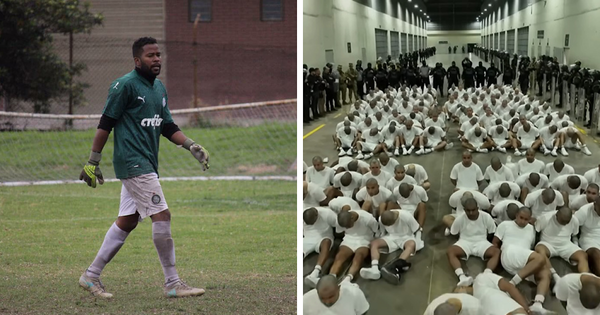The East Coast SEALs' head invited William H. McRaven, at the time serving in the George W. Bush White House, to a conference in 2002. As per custom, the group started each day with calisthenics followed by a 10-mile run.
But McRaven, then a captain, was still recovering from a parachute accident a year earlier. Nonetheless, he joined as best he could. A young lieutenant, the first soldier to lap him on the track, slowed down. Aware of McRaven's injuries, he asked, "Why are you even out here? You have nothing left to prove."
But that's not the way McRaven, 68, saw and sees it. "The day you feel you have nothing left to give is the day you should call it quits," he told Investor's Business Daily.
"You are entitled to nothing as a leader, nothing but more hard work," he said. "If you come into the job thinking that as a leader you don't need to work as hard as the rank and file because you've been working hard your whole career and now you've got the corner office, well, if you have that attitude than you're not the right person for the job."
Build a Durable Career Like William H. McRaven
McRaven gave it his all over a 37-year Navy career. Among other accomplishments, he supervised Neptune's Spear, the operation that killed Osama bin Laden. He retired in 2014 as a four-star admiral and bullfrog, the latter being the title given to the longest-serving SEAL on active duty. Since then, he's served as president of his alma mater, the University of Texas-Austin and authored several books, including, "The Wisdom of the Bullfrog: Leadership Made Simple (But Not Easy)."
McRaven came from a military family. His father was an Air Force officer who saw action in World War II and Korea. His last duty station was Lackland Air Force Base in San Antonio, which is how McRaven came to grow up in Texas.
One of McRaven's older sister's boyfriends, a Green Beret, came by the house one day. When he discovered McRaven's passion for scuba diving, he described the SEALs' history as World War II frogmen who cleared underwater obstacles in both theaters prior to landings.
Intrigued, McRaven applied to the Naval Academy, where he was wait-listed. He ultimately ended up with a full Navy ROTC scholarship at UT-Austin. And as soon as he graduated as a young ensign, McRaven applied for and was accepted for the rigorous BUD/S (basic underwater demolition/SEALs) training program. And thus began a career that made him a rare non-Annapolis grad to earn four stars.
Make Decisiveness One Of Your Traits
Decisiveness drives much of McRaven's success. He recalls a legendary conversation between Adm. Chester Nimitz, who had pre-battle jitters about his plans for the Battle of Midway, with Adm. William Halsey. Halsey's advice was simple: "When you're in command, command."
"You need to weigh the pros and cons," McRaven said. "But you don't want to get bogged down by over-analysis and fear. You want to be able to make a decision based on the information you have. And the rank and file want you to do that. They don't want a leader who is indecisive."
Your subordinates want you to look at all the facts and make a decision. "They don't want you to spend a lot of time wringing your hands and over-analyzing things that don't need to be over-analyzed," he said.
Have A Plan B And Plan C Like McRaven
In the real world, though, no matter how well a subject is analyzed, sometimes plans go wrong. That's why he feels every major situation requires a Plan B and often a Plan C. Consider Operation Neptune's Spear, for instance. The first helicopter that landed crashed in the courtyard away from its designated landing spot. Seeing that, the second helicopter was forced to veer off and land outside the compound. Within minutes, Plan A went south.
Fortunately, in the weeks leading up to the raid, Team Six practiced every contingency, including this one. And immediately, a backup helicopter was moved into position. As a result, everyone got out safely.
"Even if Plan A seems like a sure thing, you need to put some effort in considering the remote chance (that it doesn't work as planned)," McRaven said. "Because when things go off the rails it can be very detrimental to any organization."
Inspire Confidence
Planning is critical to reach a goal. But it's also important for people executing the plan to have the trust of bosses to make decisions in the field.
In Neptune's Spear, for instance, the pilot of the second helicopter didn't radio for instructions. He landed outside the compound knowing his troops would find a way to get in.
"It's like anything else — it's training," McRaven said. "You give them the opportunity to make a little decision first and you continue to increase their level of responsibility and authority. You give them harder and harder decisions to make. They're going to make mistakes, but you know that. You've got to help them resolve and fix those mistakes and hopefully not make them again."
Everyone on a team must feel a sense of ownership, McRaven says. "You have to empower the people below you to assume some risk and make some decisions, because that's the best way an organization is going to move forward."
McRaven: Go Out To 'The Factory Floor'
Building trust with employees calls for "getting out on the factory floor." Take the time to ask people doing the actual work how things are going, McRaven says.
"When you make a strategic decision, you better (factor in) how that decision is going to affect the men and women on the factory floor. And if you're not on the factory floor every once in a while, understanding what their concerns are, what the issues are, what their problems are, then you might not be making the right strategic decision."
It's important to schedule time to watch the work getting done. "Listen to the men and women that work for you, and you'll be in a much better position to make important decisions," he said.
Col. Art Sellers, who served as McRaven's executive officer, remembers his former boss "was interested in you, not just from a command perspective, but as a human being, an individual. I think what always resonated with me was that no matter how busy we were, he would take the time to talk with people as people and treat them as such."
Col. Sellers adds that McRaven has this "amazing presence." He radiates calm no matter how dire a situation might be.
And that's by design. "When you're the person in charge, the expectation from your employees, from the rank and file, is that you've got a plan for whatever crisis is brewing, that you are always on top of your game," McRaven said. "They want to have confidence in you."
William H. McRaven's Keys:
- Four-star admiral who supervised Operation Neptune's Spear, the special operation that killed Osama bin Laden.
- Overcame: Navy ROTC (not the typical Annapolis) background to rise to four-star rank.
- Lesson: "When you're in charge, you have to exude a certain level of confidence. If you have it (confidence), you're going to find the rank and file employees, the troops, whatever it is, they will be confident along with you."







